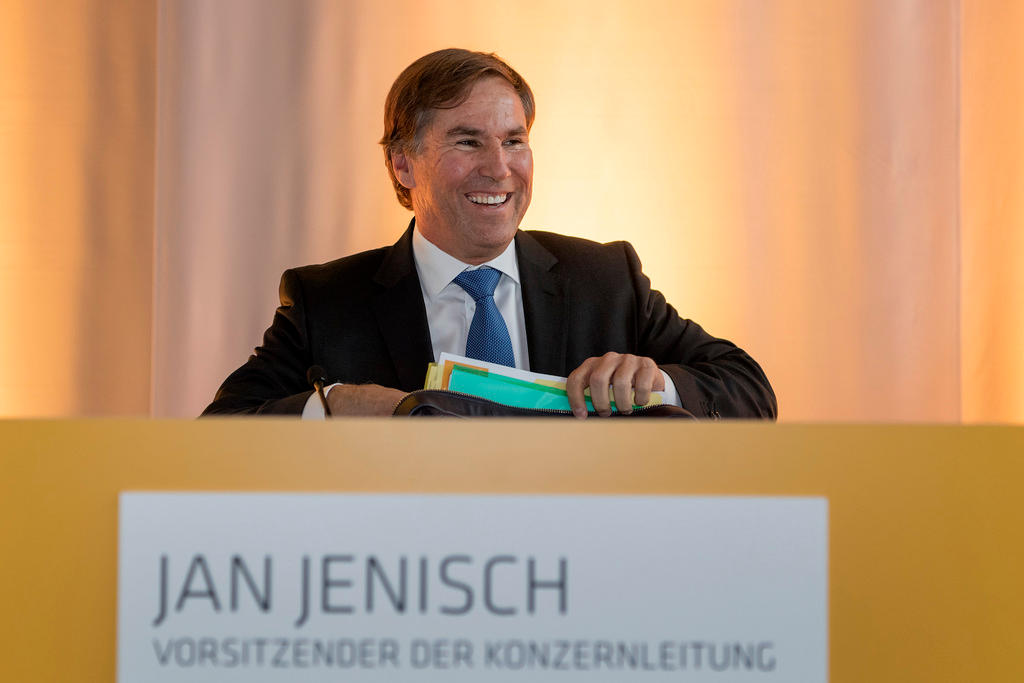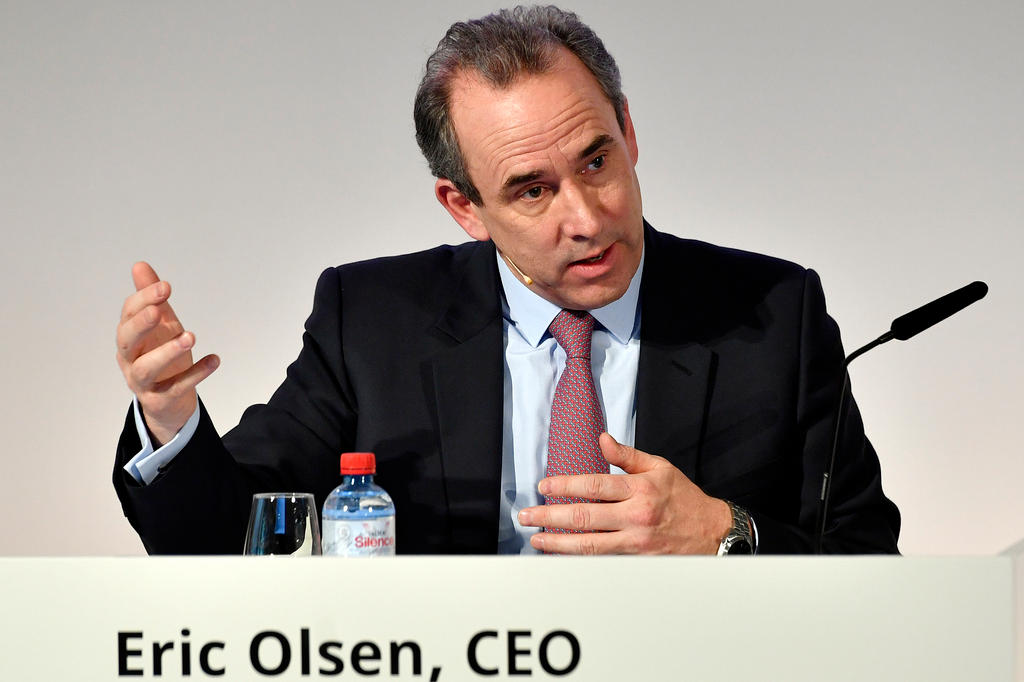New LafargeHolcim CEO given market approval

The markets have welcomed LafargeHolcim’s choice of chief executive to guide the company out of a reputational hole. Jan Jenisch, who will take over in October, has experienced difficult situations having spent the last two and a half years driving up Sika’s results against the backdrop of a shareholder civil war.
Investors immediately made their feelings felt on Monday morning following the announcement – LafargeHolcim shares lifted out of the doldrums while Sika’s share price dipped on the news.
“Jan Jenisch has a proven track record. He also has a good understanding of the construction sector, emerging markets, is a good communicator and is well respected in the industry. In all respects, his appointment seems like to be a best scenario for LafargeHolcim,” Zurich Cantonal Bank analyst Martin Hüsler told swissinfo.ch.
Jenisch was snapped up by LafargeHolcim following a nightmare few weeks for the cement making giant in which the company saw CEO Eric Olsen stand down. Olsen said on April 24 that he would resign in July as the company admitted a subsidiary had paid off armed groups Syria in 2013 in an effort to carry on doing business in the war-torn state.
Different cultures
The world’s largest cement making firm had also seen volatile share price development following the mega merger of the Swiss and French companies in 2015. Some of the downside has reportedly resulted from problems in aligning the cultures of their two firms.
“Jenisch is known for implementing and living the so-called ‘Sika spirit’ at Sika – a spirit of entrepreneurship and performance in which everyone pulled together for the same cause. The markets will be looking to see if he can create a similar ‘LafargeHolcim spirit’ to unite the cultures of the two merged companies,” said Hüsler.
There is a growing feeling in Switzerland that Holcim got the worst side of the merger deal, the terms of which had to be renegotiated before Holcim’s largest shareholders would finally sign off. The Syria debacle shows that Holcim has inherited legacy human rights issues from its French counterpart, according to Yvan Maillard Ardenti of Swiss NGO Bread For All.
India labour dispute
Holcim faced some difficulties as an independent company, most notably for its large environmental footprint and labour disputes in India. But in a study published last yearExternal link, the Protestant Church group Bread For All found that Holcim had one of the best firms in Switzerland for human rights policy and management.
By contrast, Bread For All accuses Lafarge of having unresolved legacy issues of alleged child labour offences in Uganda – which the company denied. “We have seen a missed opportunity from the merger of these two companies,” Maillard Ardenti. “We hoped that Holcim’s more stringent human rights procedures would have prevailed. Instead, the merger has led to controversies that mainly derive from the Lafarge legacy.”
Following the Syria revelations, LafargeHolcim said it has approved the creation of new Ethics, Integrity & Risk committee, supervised by a member of the Executive Committee. It will also step up its risk assessment of high-risk third parties and joint venture partners.

In compliance with the JTI standards
More: SWI swissinfo.ch certified by the Journalism Trust Initiative



You can find an overview of ongoing debates with our journalists here. Please join us!
If you want to start a conversation about a topic raised in this article or want to report factual errors, email us at english@swissinfo.ch.